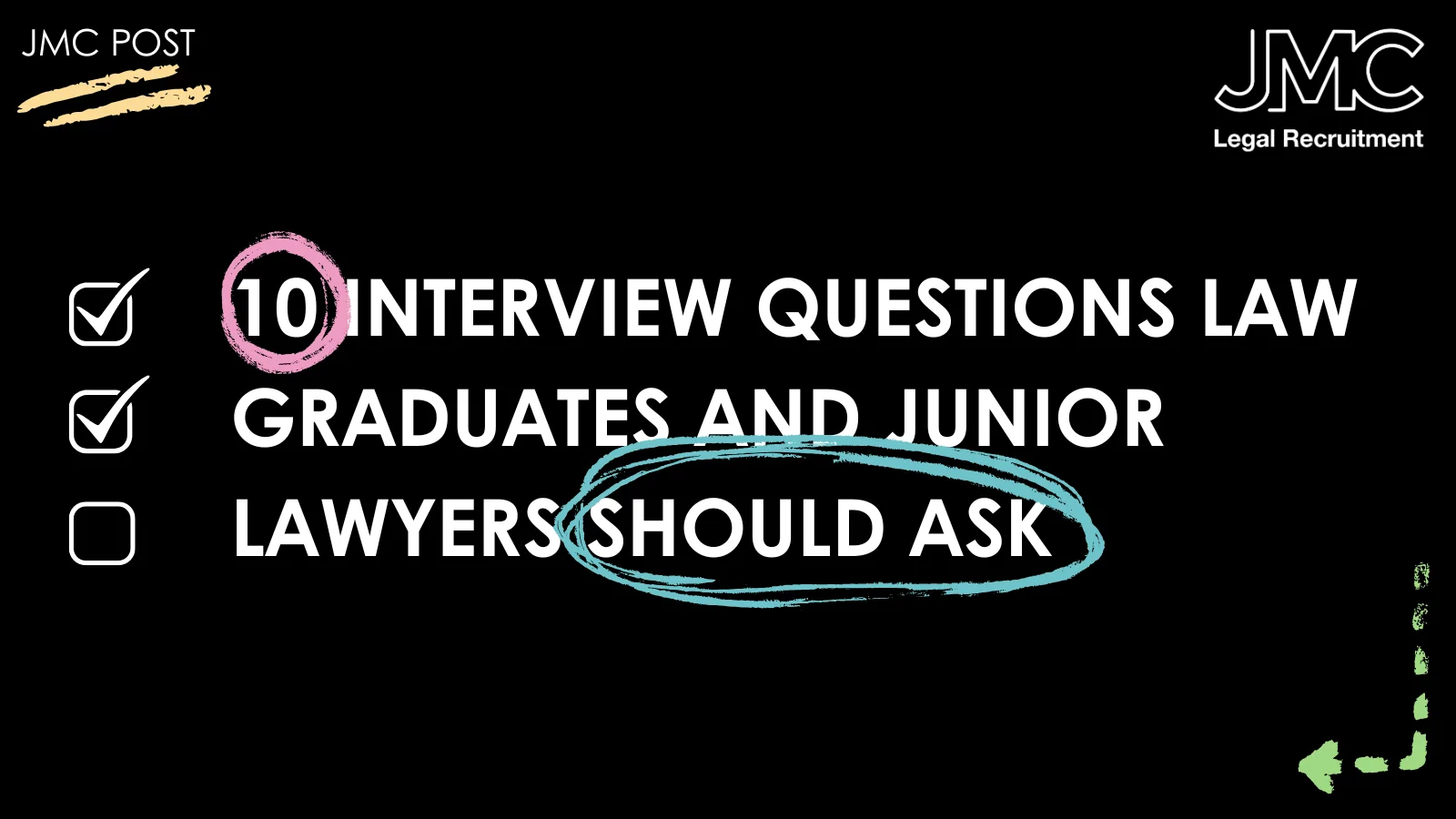
Top 10 Interview Questions Law Graduates and Junior Lawyers Should Ask
17 Jun, 20254 minutes
You’ve polished your CV, practised your STAR answers, and nailed your firm research. But then, just as you’re preparing to breathe a sigh of relief, your interviewer leans back and asks: “So, do you have any questions for us?”
Cue the tumbleweed... or worse, a half-hearted “What’s the typical day like?” that could have been lifted from page one of Google.
Here’s the truth: the questions you ask at the end of the interview can be the very thing that tips the balance in your favour. In a hyper-competitive legal market where hundreds of candidates may have similar grades, experience, and competencies, your questions are often your final opportunity to stand out.
And no, this isn’t about ticking boxes. Asking thoughtful, well-timed questions shows you’re not just eager to get the job, you want to understand what it means to succeed in it. It demonstrates that you’ve listened, you’re invested, and you’re assessing the firm just as much as they’re assessing you. It’s professional curiosity, and it makes you memorable.
In a 2024 Bright Network survey, over 70% of employers said the questions a candidate asks are as important as the ones they answer. Especially in law, where training contract interviews are fiercely competitive, your questions can subtly say, “I’m not just prepared, I’m also engaged.”
1. “What do successful trainees typically do to stand out here?”
Why it works: It shows ambition and an interest in growth. You’re not just looking to blend in, you’re thinking about how to add value.
2. “How would you describe the firm’s culture beyond what’s on the website?”
Why it works: A little playful, but clever. You’re asking for the unfiltered version — and that shows emotional intelligence.
3. “How do junior lawyers typically get involved in client work?”
Why it works: This shows you’re keen to learn by doing, not just observing — a subtle nod to your proactivity.
4. “Can you tell me about a recent case or matter that’s typical for this team?”
Why it works: You’re linking their specialisms with your interest. It also shows commercial awareness without using the phrase “commercial awareness.”
5. “How does the firm support learning and development beyond the PSC?”
Why it works: In 2025, top law firms are doubling down on L&D. Asking this proves you want to grow — not just tick the qualification box.
6. “Are there any upcoming changes or strategic goals the firm is working toward?”
Why it works: Forward-thinking = future associate potential. It’s also a great way to gauge the firm’s ambition and direction.
7. “What does progression typically look like, and how is performance assessed?”
Why it works: Ambition is good. This shows you’re career-focused, but also open to feedback and development.
8. “What do you enjoy most about working here?”
Why it works: You get insight into their real experience — and most people love being asked about themselves. (Tip: their hesitation says just as much as their answer.)
9. “How does the firm support mental health, wellbeing, and inclusion for junior lawyers?”
Why it works: In 2023, a LexisNexis report found 58% of aspiring lawyers ranked wellbeing as a top 3 priority. The best law firms to work for are answering this proactively — and they’ll appreciate that you are too.
10. “Is there anything about my application or interview you’d like me to clarify?”
Why it works: Bold. Confident. It gives you a chance to tackle any hesitations before they go into deliberation mode. (Just don’t ask this if you’ve massively fluffed a question earlier!)
Asking great questions is more than just formality when you use it to show skill. It proves:
- You’ve done your homework
- You’re actively engaged
- You understand this is a two-way conversation
Avoid the usual traps:
❌ “What’s the salary again?” (It’s online.)
❌ “How soon can I take holiday?” (Steady…)
❌ Anything that sounds robotic or generic
Related Articles:
[Top Law Firms to Work for in 2025]
[The Importance of Keeping Your C.V Up-To-Date]
[What Area of Law Pays Best in the UK]



